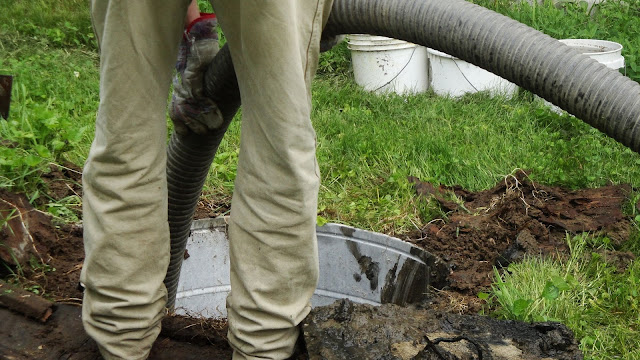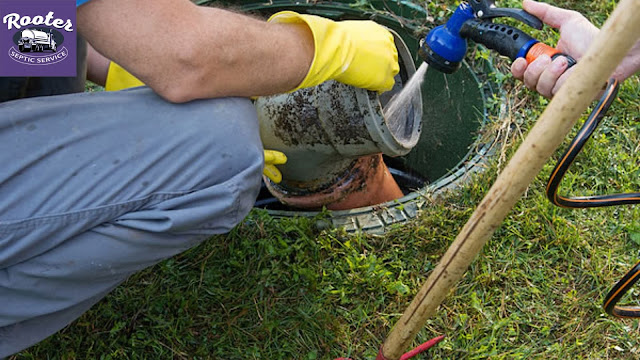Septic Pumping Tips for Homeowners: Maintaining a Trouble-Free System
Introduction:
Keeping your septic system in optimal condition is crucial for a trouble-free home. Regular septic pumping plays a significant role in maintaining the health and longevity of your system. At Rooter Septic Services, we understand the importance of proper maintenance. In this blog, we'll share essential septic pumping tips to help homeowners like you ensure a well-functioning septic system.
Understanding Your Septic System:
To
effectively maintain your septic system, it's essential to understand its
components and how they work. Your septic system consists of a tank,
drainfield, and plumbing connections. Wastewater flows into the tank, where
solids settle to the bottom and form sludge. Regular pumping removes this
buildup and prevents it from clogging the drain field.
Signs That Your Septic Tank Needs Pumping:
Recognizing
the signs that your septic tank requires pumping is crucial. Slow drains,
gurgling sounds, unpleasant odors, or sewage backups are common indicators. If
you notice any of these signs in your home, it's time to schedule a
septic pumping service.
Frequency of Septic Pumping:
The
frequency of septic pumping depends on factors like household size, water
usage, and tank capacity. As a general guideline, experts recommend pumping
every 3 to 5 years. However, specific circumstances may require more frequent
pumping. Consult Rooter Septic Services for personalized recommendations based on
your septic system's needs.
Hiring Professional Septic Pumping Services:
When it
comes to septic pumping in Jonesboro, entrust the job to professionals like
Rooter Septic Services. Our experienced technicians have the expertise and
equipment to perform efficient pumpings. They will also conduct a thorough
inspection of your system, ensuring any potential issues are addressed
promptly.
Septic System Maintenance Tips:
In addition
to regular pumpings, there are several steps homeowners can take to maintain a healthy
septic system:
Conserve water: Minimize water usage by fixing leaks, using
efficient appliances, and practicing water-saving habits.
Be mindful of what goes down the drain: Avoid flushing non-biodegradable
items, grease, oil, and chemicals that can harm your system.
Practice proper waste disposal: Only flush toilet paper and organic
waste. Dispose of other materials, such as feminine hygiene products, in the
trash.
Schedule regular inspections: Routine inspections by
professionals help identify potential issues before they become major problems.
Frequently Asked Questions about Septic Pumping:
How often should I have my septic system
pumped?
The
frequency of septic pumping depends on factors like household size, water
usage, and tank capacity. As a general guideline, it is recommended to have
your septic system pumped every 3 to 5 years. However, it's best to consult a
professional for personalized recommendations based on your specific
circumstances.
Can I pump my septic system myself?
Septic
pumping is a complex task that requires specialized equipment and expertise. It
is highly recommended to hire professional septic pumping services. They have
the necessary knowledge and tools to safely and effectively pump your septic
system, ensuring proper waste removal and system maintenance.
What happens if I don't pump my septic system
regularly?
Neglecting
regular septic pumping can lead to various problems. Over time, solid waste
accumulates in the septic tank, causing it to become full. This can result in
backups, sewage leaks, and even system failure. Regular septic pumping prevents
these issues, prolongs the life of your septic system, and helps maintain a
trouble-free system.
How can I tell if my septic tank is full and
needs pumping?
Some common
signs that your septic tank is full and needs pumping include slow drains,
gurgling sounds in plumbing fixtures, unpleasant odors, and sewage backups in
the house or yard. If you notice any of these signs, it is important to
schedule a septic pumping service promptly to prevent further damage to your
system.
Can septic pumping damage my septic system?
When
performed by experienced professionals, septic pumping does not cause damage to
your septic system. In fact, regular pumpings are essential for maintaining a
healthy system. Professional septic pumping services use specialized equipment
and follow industry best practices to ensure the process is carried out safely
and efficiently.
Conclusion:
Maintaining
a trouble-free septic system requires regular septic pumping and diligent
maintenance. At Rooter Septic Services, we provide expert septic
pumping services to help homeowners like you keep their systems in optimal
condition. By following the septic pumping tips mentioned in this blog and
scheduling regular maintenance with our team, you can enjoy a trouble-free
septic system for years to come. Contact Rooter Septic Services today for all
your septic pumping needs in Jonesboro.

.jpg)



Comments
Post a Comment